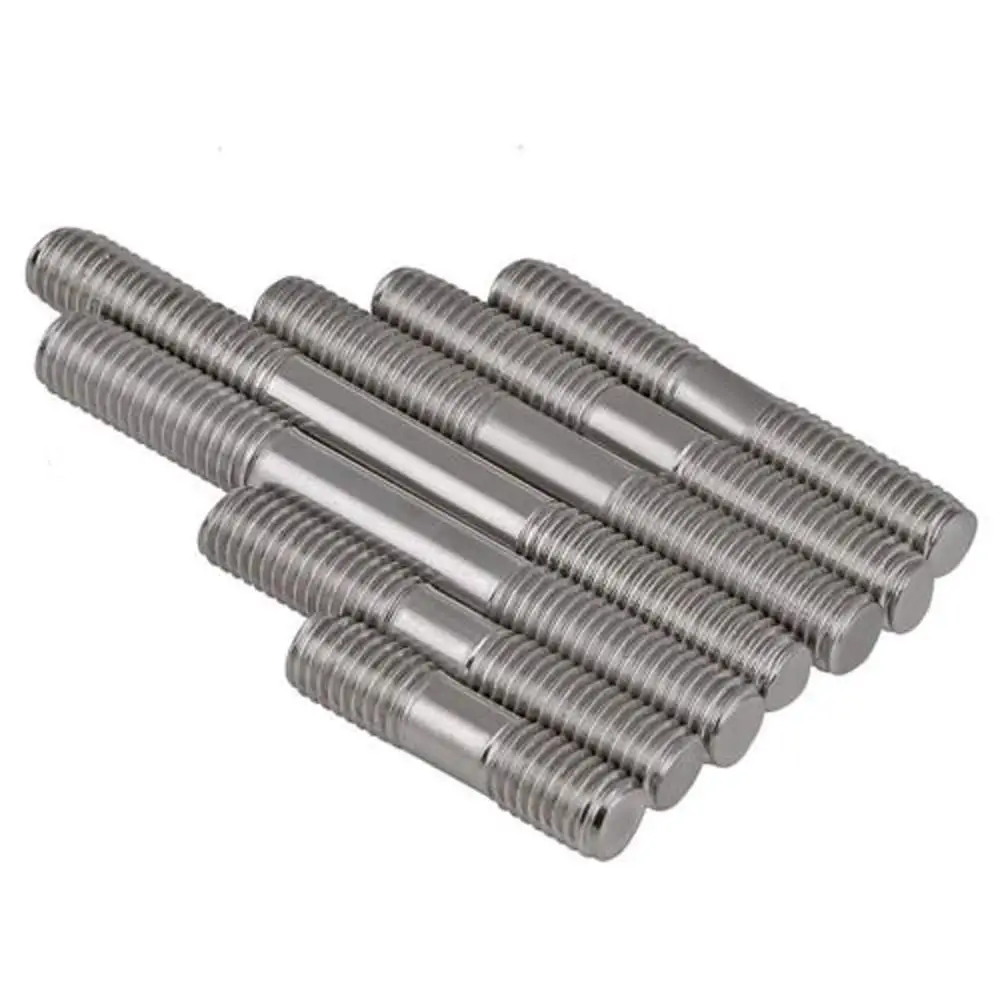Stud bolts are externally threaded fasteners without a head that are used in place of a typical “bolt & nut” arrangement. They are utilised with two nuts on either side. In flange connectors, stud bolts are frequently employed.
Essentially, a stud is basically a threaded bar. Although some studs have heads that become permanently absorbed into the object they are fastened to, this frequently resembles a machine screw without a head. In conjunction with a nut, Stud Bolts can be used to permanently attach one element to another, providing a mechanism of attachment. This sort of stud can be attached by welding, swaging, or bonding; as a result, it might have a small head.
The sorts of stud bolts are as follows, and they vary depending on their design and threading patterns.
Double End Stud Bolts
stud bolts with a non-threaded core and threaded ends of equal length.
Tap End Stud Bolts
stud bolts with non-threaded centres and extreme extremities with different length threads.
Continuous Threaded Stud Bolts
Continuous thread stud bolts are stud bolts that have a constant thread pattern along their whole length. Typically, this style does not have chamfered ends
Welding Studs
These welding studs, in contrast to others, are utilised with a nut on one side and are welded to the support on the other. primarily produced in accordance with DIN 525
Flange Stud Bolts
This category only includes stud bolts with continuous thread over their whole length and chamfered ends that are utilised in flange connections. Unlike standard “Continuous Thread Stud Bolts,” the theoretical length is measured from the first to the final thread.
Double End Stud Bolts with Reduced Shank.
Stud bolts with centres that are smaller than the actual diameter of the stud and equal thread lengths on both ends.






